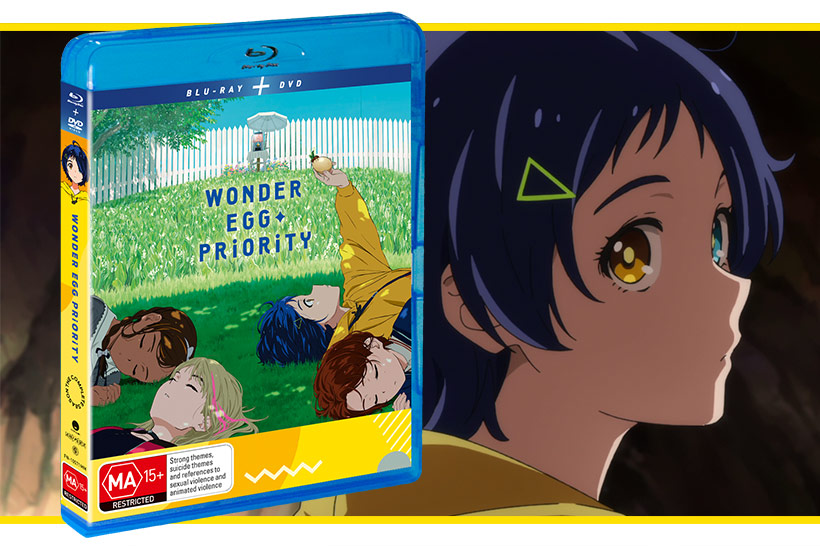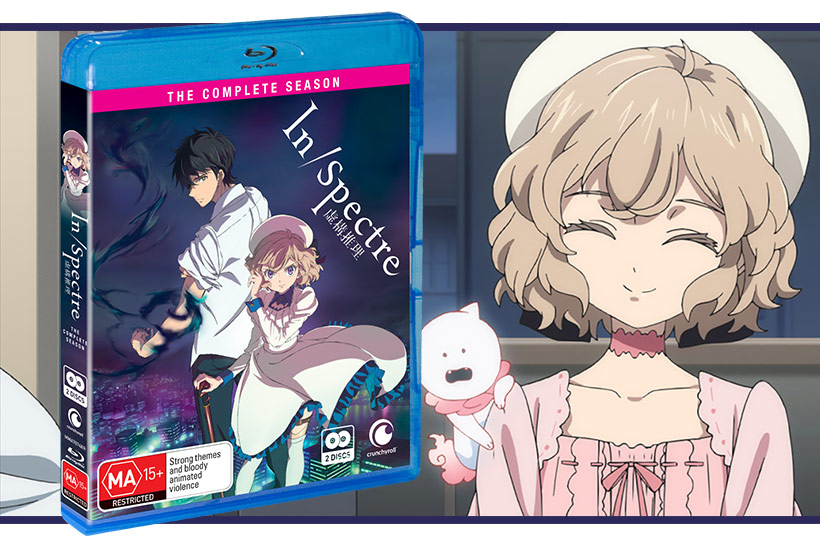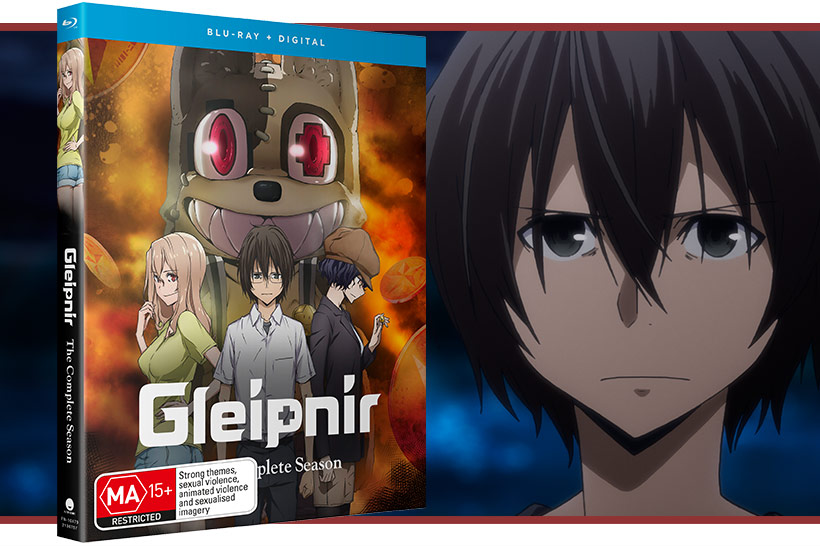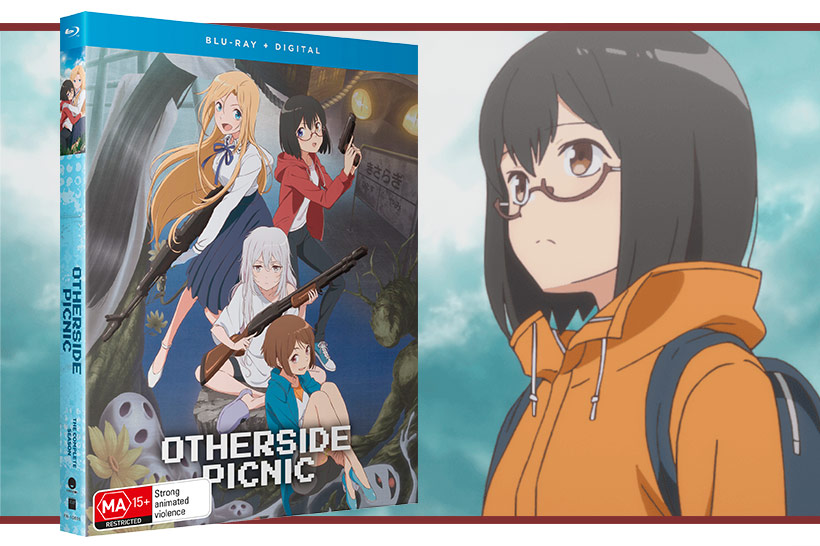Wonder Egg Priority’s jubilant packaging proves to be a challenging and engaging bait and switch for a production that explores the impacts of mental health on young women in contemporary Japanese society.
Wonder Egg Priority focuses on the experiences of Ai Ohto, a high school student completely disengaged with her school over the impacts of systemic bullying and the suicide of her best friend. She inadvertently stumbles into a pseudo alternative reality with the procurement of a “Wonder Egg”, with the promise that by floating between dimensions to fix unresolved conflicts from other people who have died that she would be able to bring her friend back to life. She’s joined on her journey by other young women who have also found themselves entangled in the mysterious supernatural search-and-rescue of other lost souls, taking them on a journey to come to terms with their own issues by helping others.
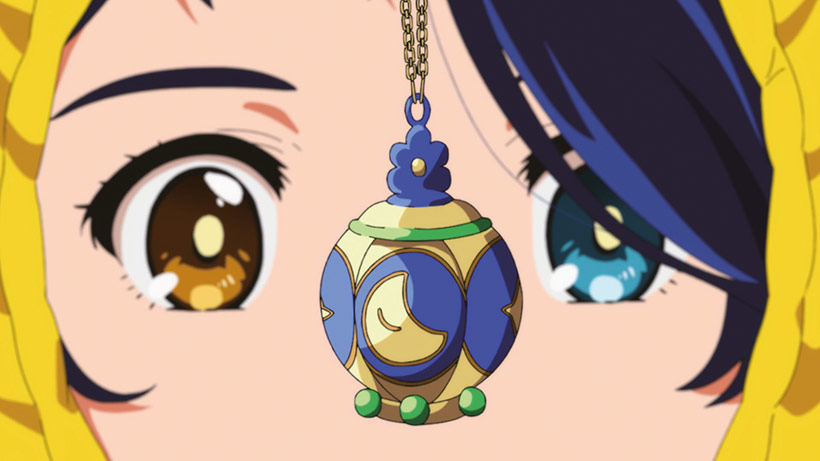
Wonder Egg Priority is a gorgeous and fascinating production, but incredibly subversive due to the way it handles its core content. The core cast – Ai, Neiru, Rika and Momoe – are brought together for their shared purpose to bring back someone precious to them who died as a result of suicide, yet explores this as a fantasy battle that takes a profane object and transforms them into sacred weapons. In return for their services the girls need to help break out the other young women who have killed themselves to release them from a spiralling purgatory their souls are trapped in amongst at-times technicolour wizardry that feel almost like a shounen battle anime. Except it’s not the fate of the world on their shoulders – it’s releasing someone from a spiral of psychological trauma and torment.
As the story unfolds we get to learn more about their backgrounds as well, from Ai’s withdrawal from school, Rika escaping an emotionally abusive and irresponsible single parent, Momoe’s struggle with gender and identity, and finally Neiru’s complex social awkwardness. It paints a refreshingly honest look at the issues faced by young women in Japan with school bullying and social pressures triggering ripples of cascading themes and issues across both the core cast and the women’s souls they’re trying to rescue.
Suicide is the crux of the story and the show explores this in a way that gradually evolves beyond a simple revenge fantasy and towards important introspection for the four main players. Others have noted the way Wonder Egg Priority visually and narratively go through this journey is not unlike the way Puella Magi Madoka Magica dealt with surreal and horror themes under the guise of a disjointed magic girl trope.
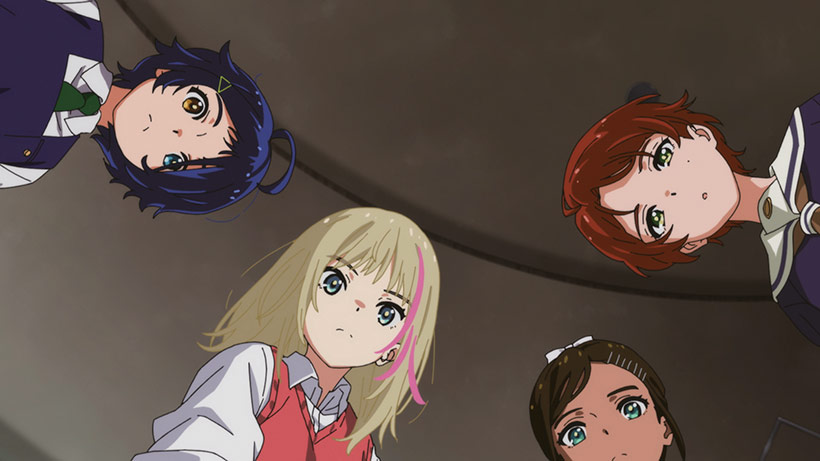
On the surface it’s easy to see where thinking is going, but while the way in which Ai and her friends deal with releasing the lost souls echoes this with it’s hyper-kinetic visuals, I’d argue the underlying themes create a grounded and sobering picture of the pressures and abuse faced by young women that sadly aren’t unique to Japan. Wonder Egg Priority in this sense earns its mature rating as the content is not just about the violence in the action sequences (as spectacular as they are), but in the violence experienced by the victims being saved by the core cast.
In a sense it’s sobering viewing, and maybe that’s why it will hopefully be remembered over time as an important part of anime as a unique mode of animated expression.
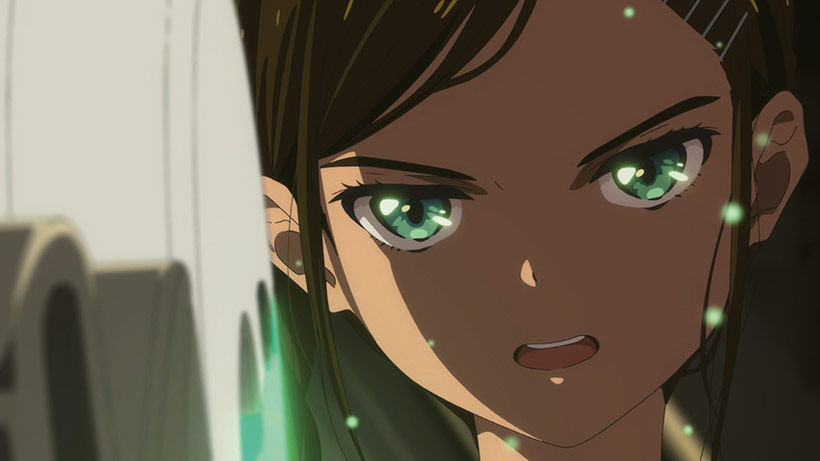
But this exploration is somewhat jarred by the latter part of the series which works on unravelling parts of the mystery behind the genesis of the Wonder Egg program that forms the running story threads, as taking out the surrealism and trying to ground it undermines the importance of how it portrays a unique way of processing trauma.
But then it’s not so cut and dry because the explanation of how the parallel universes originated has its own interesting themes that were worth exploring, but the heavy handed approach in hindsight could have been softened a bit. The issues aren’t surprising given the significant production issues with staffing and a cluster of issues resulting in an insane amount of crunch that explains the change in flow as the series went on.
Despite these problems, Wonder Egg Priority remain fascinating to watch in action, explore the worlds of the characters and watch them grow. We see this primarily through Ai as the main character in the series as she works through her sense of tokokyohi (well, I guess futoko if we’re being a bit more contemporaneous, but Professor Yoneyama’s work is a fascinating read nonetheless) to slowly rebuild her confidence and thus breaking the cycle to avoid developing into a state of hikikomori. But we see this to degrees with the rest of the cast as well as the participation in the Wonder Egg activities unleashes an unconventional form of therapy for them.
For the local release of Wonder Egg Priority, Madman have included both Blu-Ray and DVD releases of the show for the sake of convenience, though for this review I stuck purely to the Blu-Ray version. Encoding is stunning and rarely, if ever, really skips a beat and it’s bilingual for those who want to watch it in English. Extras include ops/eds and promo videos for the show, but not much else.
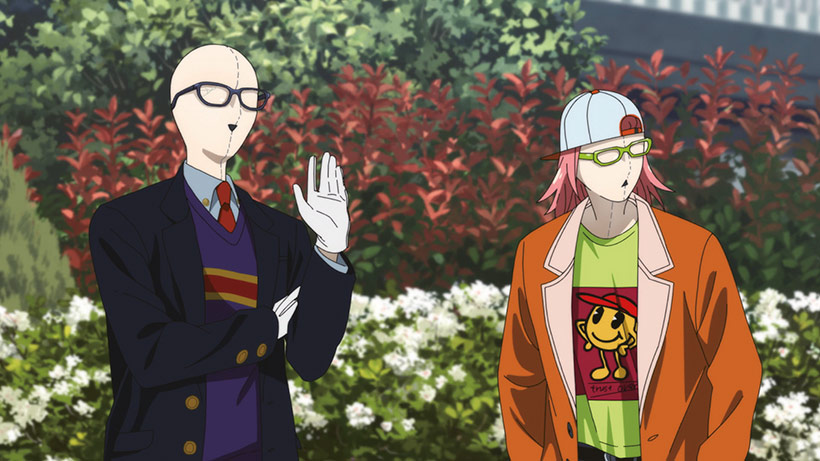
Wonder Egg Priority may not be perfect, but it’s bold and the use of surreal action sequences to explore heavy themes of grief, violence and trauma make this a stand-out series, though the topics of suicide and abuse will understandably present barriers to some. Even with the issues that hit the latter half of the season I found the show engaging and interesting – I hope we continue to see anime like Wonder Egg Priority push the boundaries with new and interesting ideas.
A review copy was provided by Madman Entertainment to the author for the purpose of this review.

